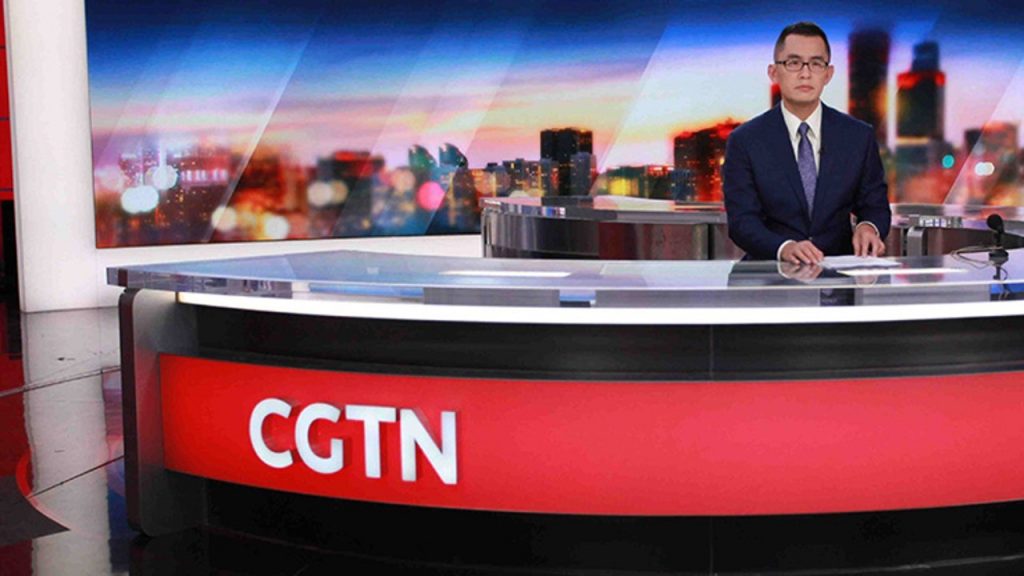

UNDERCOVER INVESTIGATION:
Apartheid, Racism inside CHINA GLOBAL TELEVISION NETWORK in Nairobi busted…African Reporters live in fear, allow Chinese use the restroom first then follow afterward
* Only permitted to eat in the cafeteria after Chinese journalists have eaten at 1pm
* Shocking details of how Black Reporters are treated as inferiors, Salary delayed
* On billboards in Kenya, claims in Swahili slogan “mtazamo tofanti,” or “see the difference
* “ We don’t produce independent journalism, but pure propaganda by order of the Communist Party”-News Reporter in CGTN Kenya
BY KENGA KULUNGA/REPORTING LIVE FROM NAIROBI
THIS IS CLEARLY A WORST MOMENT FOR CHINA GLOBAL TELEVISION NETWORK, CGTN, a major broadcast television station earlier seen as a leader in independent journalism. As said that “not all that glitters are gold,” fact emerging from an inside source (an employee) in one of the Nairobi offices lay bare questionable behavior, slavery attitude purely reflective of the apartheid era in South Africa during late Nelson Mandela time is presently on-going in CGTV.
According to Mr Sam(real name with held to avert a backlash) narrated how Chinese journalists working in their Nairobi offices live like dictators purposely due to their color of their skin and not place on any variation. “We (African journalists in CGTV) have to let the Chinese go first in the restrooms and we’re only allowed to eat in the cafeteria after 1 p.m., after they have eaten. They treat us like their inferiors,” stated Sam.
In spite of the make-believe in the eyes of international community that CGTV is following the standard of journalism, Sam defers by stating that “CGTV does not follow independent journalism standard but instill fears in their Black employees never to tell any negative stories or events bothering on the broadcast station to anyone if they want to keep their jobs.”
Yet Liao Liang’s mission in the Kenyan capital is hardly confidential: As a senior editor of the CGTN, a subsidiary of Chinese state television, his task is that of shining a positive light on his country’s ambitious activities- particularly those in Africa, where China’s reputation has suffered as its footprint has grown.
The broadcaster occupies three floors in the K-Rep Centre, a mirrored-glass high-rise in the upscale neighborhood of Kilimani. The first security check comes right at the building entrance, including a pat-down and questions from the suspicious receptionist. After that, though, there’s no getting by the next receptionist on the third floor. “To be honest,” she says with fake regret, “there is no chance you’ll be allowed to see Mr. Liao.”
Liao Liang is top dog at the broadcaster. He was allegedly an army officer in a previous life, but little else is known about him. CGTN employs around 150 people, including journalists from China, South Africa, Britain, Nigeria and Kenya, yet even when promised anonymity, nobody initially agreed to speak with DER SPIEGEL. “They’re afraid of Liao,” an employee would later say.
“Tell China’s story well,” instructed Chinese President Xi Jinping three years ago when he visited the broadcaster’s headquarters in Beijing. CGTN journalists aren’t just there to ward off criticism of China’s expansion in Africa but also to break the West’s media dominance. The broadcaster has a similar mission in Africa as Russia’s state broadcaster RT does in Europe.
At the heart of China’s Going Out policy is a media offensive launched in March 2018, an initiative coordinated by the broadcast group Voice of China and carefully monitored by Communist Party censors. In addition, the state-run news agency Xinhua was expanded and now claims to be the largest news wire in the world.
The campaign has been pursued particularly energetically in Africa, a part of the world that China believes has a bright future. Every year, 1,000 African journalists take part in training programs in China and Chinese investors have been investing heavily in African media outlets. The TV station StarTimes now broadcasts its paid offerings in 30 African countries and declares itself to be the most influential digital channel on the continent.
For CGTN, its Nairobi offices are one of its largest subsidiaries outside of China and it is the only television station in the world that broadcasts in all six official UN languages. It has 79 million Facebook followers, which is roughly as many as the BBC and CNN combined.
CGTN claims to be independent. On billboards in Kenya, it uses the Swahili slogan “mtazamo tofanti,” or “see the difference.” The station also insists that it is both open and transparent, but its headquarters are as well-guarded as the Forbidden City in Beijing used to be. After several attempts at finding someone to talk to, one employee finally agrees to meet at a neutral site.
Sam isn’t particularly complimentary of his employer. “It’s an apartheid system,” he says, with the Chinese at the top, then the whites, then the blacks and at the very bottom are the Kenyans. “As I said earlier, we have to let the Chinese go first in the restrooms and we’re only allowed to eat in the cafeteria after 1 p.m., after they have eaten. They treat us like their inferiors. Sometimes, I only receive half of my contractual editor’s salary of 2,000 euros per month, said Sam. He says he is penalized 2,000 shillings – around 17 euros – for every mistake in his stories, including typos.
He is particularly bothered by the fact that at CGTN, as he claims, he has had to abandon his journalistic integrity. He says he continues working there because of the lack of alternatives. “We don’t produce independent journalism, but pure propaganda by order of the Communist Party.” He says the goal is that of presenting the most harmonious image possible of China’s activities in Africa, including construction sites full of smiling workers and positive coverage of massive endeavors like dams and other mega-projects along with humanitarian aid contributions.
Sam says he sometimes feels like a news footsoldier who merely fulfills the orders given by Commander Liao Liang. He shows a text message that he recently received from the boss: “No reports on the chaos!” The reference was to political disturbances in a country in Africa. Till date, almost all African journalists in CGTN Nairobi are daily living in fear, since none of them (Black reporters) are having media fulfillment in their career.



